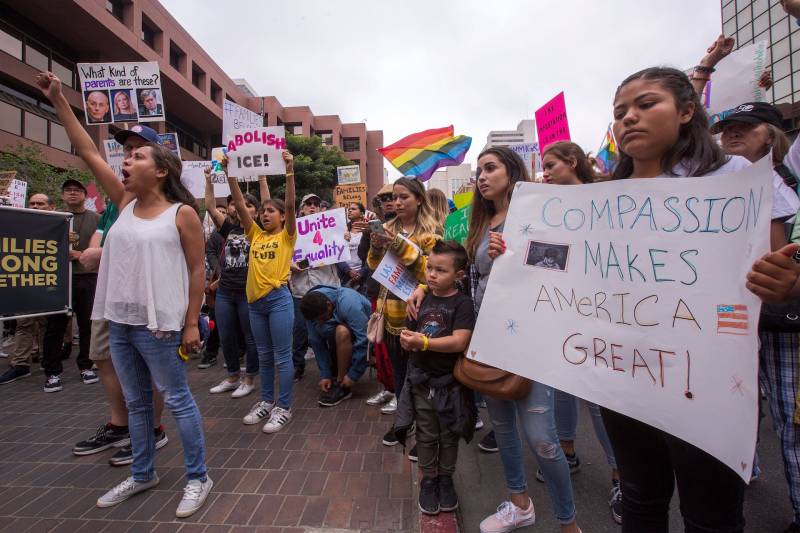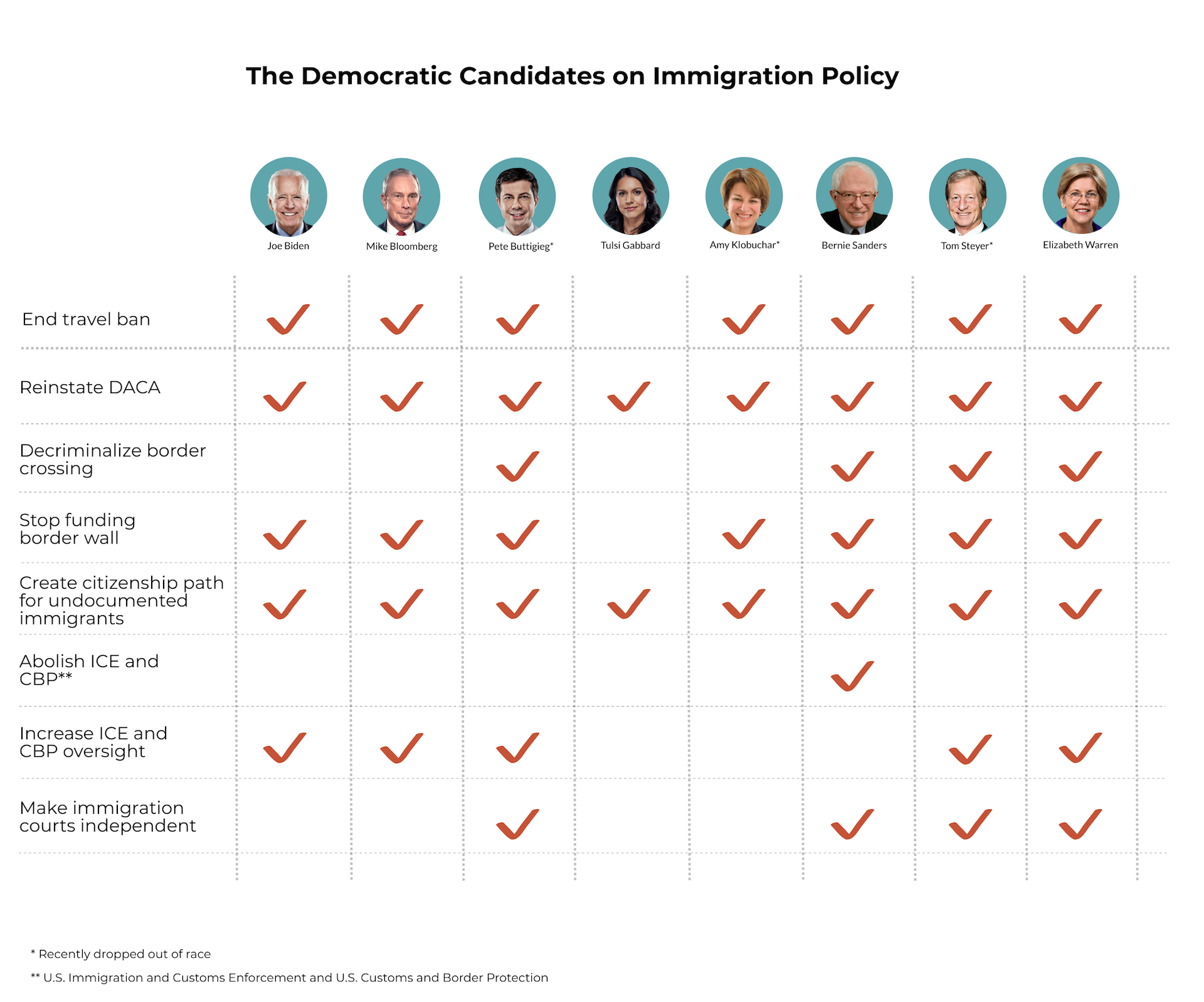Last summer, in the first Democratic presidential debate, former Housing and Urban Development Secretary Julian Castro and former Texas Rep. Beto O’Rourke got into a heated exchange over whether to decriminalize unauthorized border crossings (Castro in favor, O’Rourke opposed).
The debate flared in the context of the Trump administration's “zero tolerance” policy, a widespread effort to crack down on illegal entry into the county by criminally prosecuting all migrants who didn’t present themselves at an official port of entry. The policy resulted in the separation of more than 5,500 migrant children from their parents.
Under decriminalization, favored by Castro, unauthorized migrants would still be deported, but they wouldn’t have to first serve time in jail.
That June debate was a rare moment when immigration took center stage in the Democratic primary. In most debates since then, it has been an afterthought — despite the fact that President Trump is likely to make tough-on-immigration policies a centerpiece of his reelection campaign.

